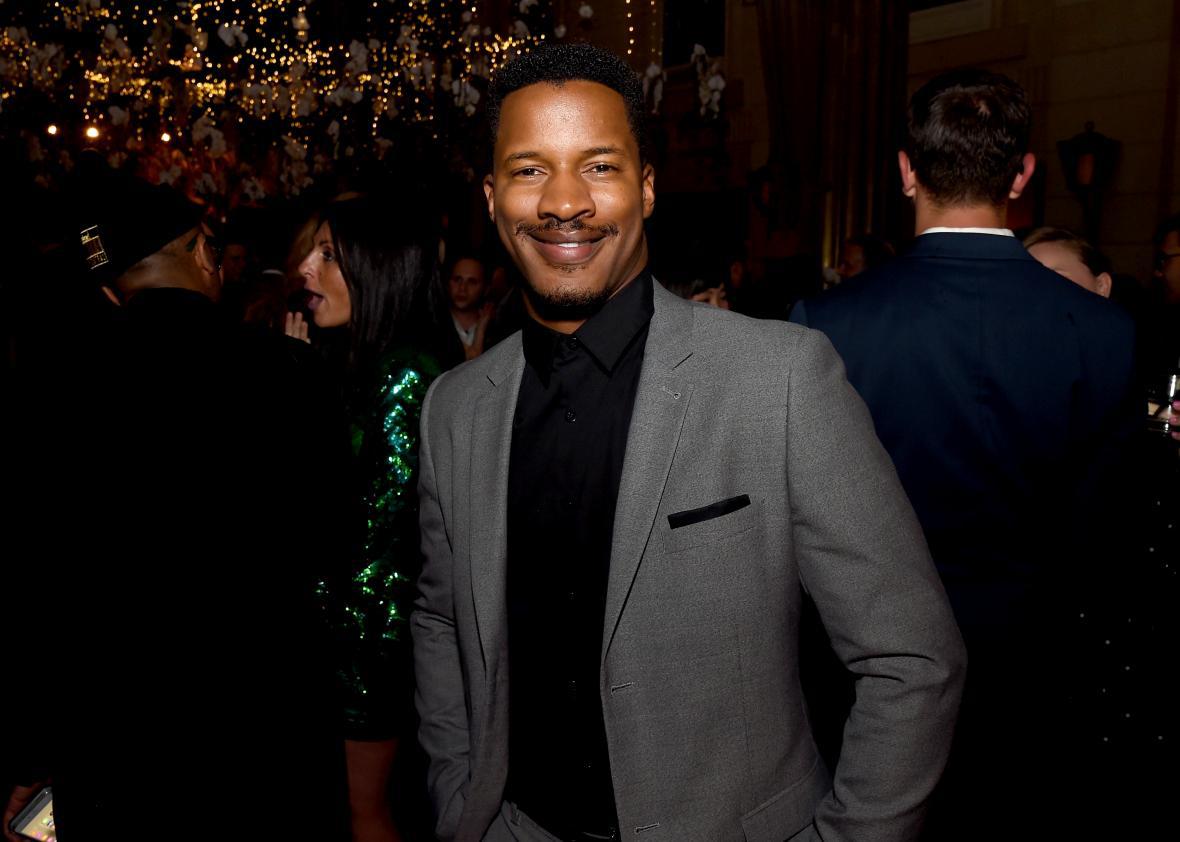Nate Parker’s The Birth of a Nation screened at the Toronto International Film Festival on Saturday night, the first public showing of the film since its publicity campaign has been marred by new discussions of Parker’s turn-of-the-millennium rape trial. Parker was acquitted of rape charges in 2001 after a fellow Penn State student accused him and a friend of forcing her into sex acts while she was drunk and partially unconscious; he and his defense team argued, and the jury agreed, that the sex with Parker was consensual. In his press appearances at the festival, Parker has made it clear that he’s ready to stop talking about it.
Parker’s handlers cut short a one-on-one interview with Eli Glasner of Canada’s CBC this weekend after Glasner’s questions edged too close to Parker’s past actions. “When I asked Nate Parker—the actor and director, the producer, the force behind this film—about whether he’s concerned that the controversy around his past action has devalued this film, again, he was very much focused on the positive, kind of spinning it in that direction,” Glasner said in a CBC broadcast.
The footage from the interview shows Parker shrugging at Glasner’s question and implying that all the attention to past allegations against him does a disservice to the other people who worked on the film and the memory of Nat Turner, the subject of The Birth of a Nation and the leader of an 1831 slave uprising. “The film screened last night. The film screened at Sundance. There are 400-plus people that worked on this film,” Parker says. “So many hours put into it, so much love put into it. Even just the legacy of Nat Turner—his sacrifice, what he gave, the energy that went into destroying his legacy, and here we are. And you’re here.”
“Do you think Fox Searchlight has changed their strategy because of all of this media attention?” Glasner asks. Then, one of Parker’s handlers speaks up in the background, saying “Thanks, Eli, we’re gonna wrap up.” In the CBC broadcast, Glasner said he’d been promised five minutes with Parker, and he was “nowhere near that” when the interview got cut.
This publicity strategy—playing discussions of Parker’s rape trial off as a distraction that harms more than just Parker—also showed up in a Sunday TIFF press conference. “This is a forum for the film, for the other people sitting here on this stage,” Parker said when asked why he hadn’t apologized for his alleged actions against the woman who accused him of rape and committed suicide in 2012. “It’s not mine at the moment. It doesn’t belong to me. I really don’t want to hijack this forum. I want to make sure that we are promoting this film.” He continued:
I would say, you know I’ve addressed it. The reality is there is no one person that makes a film. Over 400 people were involved in the making of this film. I would just encourage everyone to remember that personal life aside, I’m just one person. The way we ran our set, there was no hierarchy. We did our best to create the type of atmosphere where people felt included.
Since Parker has flubbed nearly all of his previous attempts to address the issue and some of his supporters have gone so far as to use his accuser’s mental health history to defend him, a PR tack that shifts the attention away from him seems like a smart move. If the film has a hope of moving past Parker’s tone-deaf response to the controversy, it’s either that or making Birth of a Nation Star Gabrielle Union, who’s written movingly about her own rape, the film’s solo spokesperson.
